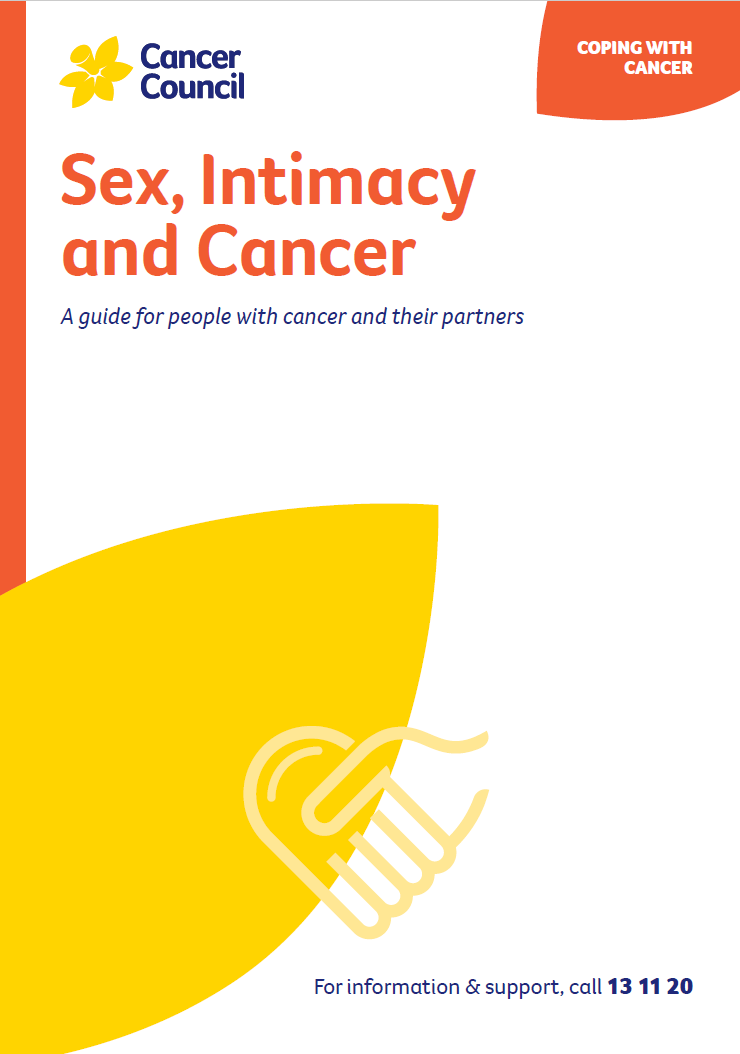- Home
- About Cancer
- Managing side effects
- Sex, intimacy and cancer
- Overcoming specific challenges
- Anxiety
Anxiety
Feeling anxious and scared is a normal reaction to finding out that you have cancer. You may also feel anxious about having sex. You may worry about how you look, how your partner will react, how your body will work, fear being touched, or be anxious that sex will hurt. If you’re single, you may also feel worried about starting a new relationship. If the anxiety is about intimacy, ask your GP or other doctor for a referral to a sex therapist or psychosexual therapist.
Anxiety may affect your self-esteem and you may lose interest in sex or even avoid it. Learning more about the cancer and asking your treatment team what to expect can help reduce uncertainty and ease anxiety. Think about how you have coped with stressful situations in the past and talk about these strategies with your partner, a trusted family member or friend.
Tips for managing anxiety
- Relaxing your body and mind can help you feel more in control. Try mindfulness, relaxation or meditation. Listen to our relaxation and meditation podcast below.
- Talk to your doctor about medicine to help manage your anxiety. Keep in mind that some medicines may lower your libido or your ability to have an orgasm.
- If thoughts race or are hard to control, cognitive behaviour therapy (CBT) may help. It changes unhelpful thought patterns that affect your sex life. A psychologist or counsellor can support you. Ask your GP for a referral as you may be able to get a Medicare rebate.
- Anxiety can affect sleep, and poor sleep can cause anxiety. Ask your doctor how you can improve your sleep.
→ READ MORE: Sadness and depression
Podcast: Meditation and Relaxation
Listen to more of our meditation and relaxation podcast
More resources
Dr Michael Lowy, Sexual Health Physician, Sydney Men’s Health, NSW; Gregory Bock, Clinical Nurse Consultant – Oncology Coordinator, Urology Cancer Nurse Coordination Service, Cancer Network WA; Anita Brown-Major, Occupational Therapist and Director, Thrive Rehab, VIC; Helena Green, Psychosexual Therapist and Clinical Sexologist, Insync for Life Psychology and Women Centre, WA; Dr Lisa Mackenzie, Clinical Psychologist, HNE Centre for Gynaecological Cancer, Hunter New England Local Health District, NSW; Dr Tonia Mezzini, Sexual Health Physician, East Obstetrics and Gynaecology, SA; Sophie Otto, Prostate Cancer Nurse Consultant – Central Adelaide Local Health Network (CALHN), SA; Giovanna Raco, 13 11 20 Consultant, Cancer Council Victoria; Kath Schubach, Urology Nurse Practitioner, VIC; Emily Stevens, Gynaecology Oncology Clinical Nurse Consultant, Southern Adelaide Local Health Network, Flinders Medical Centre, SA; Anja Vukovic, Clinical Specialist Social Worker, Gynaecological Oncology, Westmead Hospital, NSW; Alan White, Consumer; Kathleen Wilkins, Consumer; Merran Williams, Consumer.
View the Cancer Council NSW editorial policy.
View all publications or call 13 11 20 for free printed copies.

